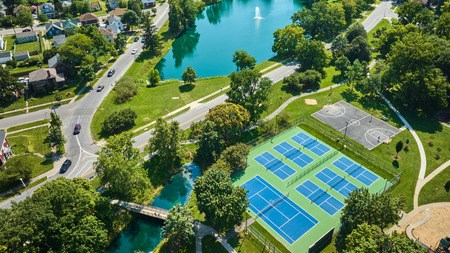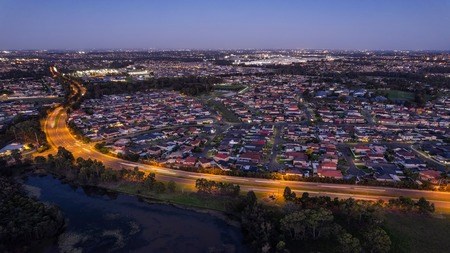Property prices in most parts of London never truly felt the effects of the economic fallout. The demand for property in this cosmopolitan city continued to climb as the demand for homes grew. London is always going to be a popular place to live. However, like the rest of the UK, space can be limited and those who want to extend their homes are often restricted not so much by a lack of finance, but by a lack of space. Semi-detached homes are a common sight on the smallish island and although conservatories add a nice sunny place in which to sit, those who have grander plans have, until now, been stymied.
It appears that the latest craze to hit the streets are 'iceberg' homes'. So named because most of the home is built underground, the new trend is adding serious value to some otherwise ordinary properties.

According to a report in The Daily Mail, one of the latest homeowners to go this route is Tetra Pak heir, Hans Rausing who is planning a double basement that incorporates an underground pool, car park and gym.
On the face of it, making use of underground space to enlarge a home in a country where space is at a premium is a stroke of absolute genius. The extensions are however not without controversy. Neighbours tend to complain of excessive noise and vibrations when soil and other debris is excavated from the underground areas and road closures are also often the order of the day while the building work is carried out.
One wealthy Londoner has managed to dodge this controversy and recently completed a major extension to his semi-detached home in South Kensington which entailed digging 23 feet ( 7.010m) down , creating an added space of 1 130 square feet (344.424 sqm). The property now features four bedrooms, three with bathrooms en suite, reception rooms, a media room with bar and a wine cellar.
Although South African homes tend to be much larger than the average British home and space here is generally not too much of a problem, developing areas under a home may well prove popular. Security is a major concern for most of us and having bedrooms and the like underground could add an additional layer of security.
Out of sight is out of mind and the fact that additional rooms or floors (as in the case of the British homeowner) are tucked away underground could well stop neighbours objecting to the planned improvements if they feel that the proposed changes might perhaps have an adverse effect their properties.
One also has to wonder how an underground development would affect the price of the home. The UK developer appears to have hit gold and recently put what appears to be a pretty standard terraced home from the outside on the market for £5.95-million.
The idea of course isn't going to appeal to everyone. We live in a warmer climate and our properties tend to focus more on outside living than in. However, adjustments can be made as the homebuilder in the UK showed. He used a clever design which ensured that all the rooms on all the storeys of his property have incorporated skylights. In other words, digging down deep does not necessarily mean building dark, gloomy rooms and 'iceberg' homes could prove to be more popular in this country than we think.



